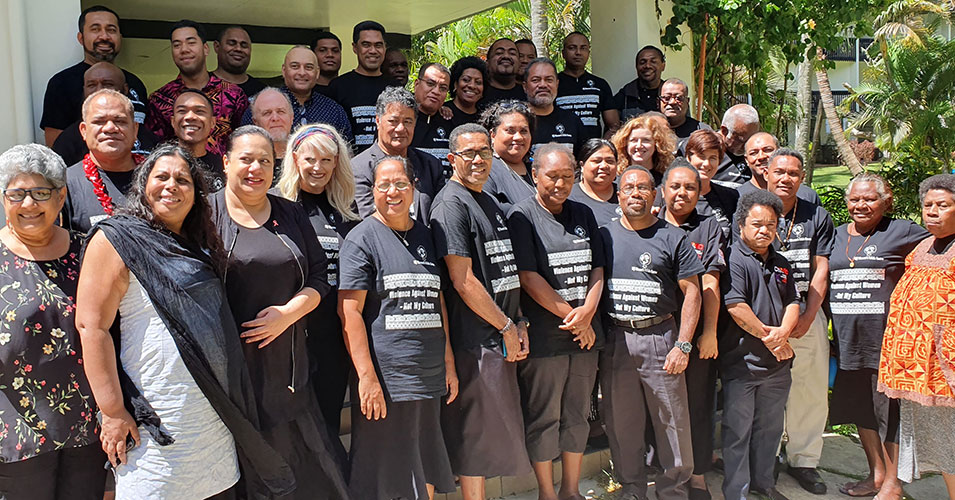
A set of principles and best practices was presented by the Regional Pacific Women’s Network Against Violence Against Women and UN Women Fiji Multi-Country Office, on December 7.
There is widespread recognition that preventing violence against women and girls requires working with men and boys as allies, partners and activists.
The ‘Warwick Principles: Best Practices for Engaging Men and Boys in Preventing Violence Against Women and Girls’ outlines seven key principles that have been developed by and for Pacific communities and are grounded in the lived realities of women and girls:
- Be accountable to the women’s movement in the Pacific
- Do no harm
- Be grounded in a human-rights based approach
- Be evidenced-based and evidence-building
- Be inclusive and intersectional
- Be gender transformativ
- Be informed by context.
The principles are a culmination of a series of regional consultations and meeting held from 2016-2019.
The network's Chair and Coordinator of the Fiji Women’s Crisis Centre Shamima Ali said that in the Pacific, women’s rights movement had led the work on responding to violence against women and girls over the past 35 years and had played a crucial role in advancing local understanding of women’s and girls’ rights, getting the issue onto the public agenda, and providing much needed services.
Male advocacy
FWCC developed the Male Advocacy for Women’s Human Rights and Against Violence Against Women programme, which is called the Male Advocacy programme is used in Fiji, Tonga, Vanuatu, Solomon Islands, Papua New Guinea and the Cook Islands.
It is designed to work with men in questioning and reflecting on their own individual behaviours on gender inequality and violence against women, before they could support efforts to address violence against women and girls.
“We’re glad to see that the Warwick Principles reflects this, in fact we made sure that it did."
The principles were launched to mark the National Day of Remembrance and Action on Violence Against Women, an important day in the 16-Days Campaign, where men’s role in preventing violence is highlighted.
'Ofa Guttenbeil-Likiliki, Director of the Women and Children’s Centre in Tonga (WCCC) said the increasing number of new actors undertaking efforts to prevent men’s violence against women and girls brings new opportunities and the need to ensure that everyone is working from a common framework and principles that is aligned to feminist values.
"For us, as members of Regional Pacific Women’s Network Against Violence Against Women, it is important that there is shared understanding of the problem; agreement around the solutions when it comes to prevention and men’s role in it; and that the framework is aligned to the work we’re undertaking through our male advocacy programmes across the region”.
Shared Melkie Anton from Papua New Guinea, said as male advocates, their work is based on the principles of women’s human rights and women’s experiences of violence.
"These principles guide our work and is being led by a strong women’s network who work to end violence against women in the Pacific."
At the same time, UN Women Fiji Multi-Country Office Ending Violence Against Women and Girls Programme Specialist Abigail Erikson said, the Warwick Principles provided a path forward to guide safe and ethical engagement of men in efforts to prevent violence against women and girls.
In addition to undertaking this work in a way that addresses concerns of Pacific feminists, that this engagement is accountable to women’s leadership, activism and the Pacific women’s movement, she said.
This work is supported by the Pacific Partnership to End Violence Against Women (Pacific Women) funded primarily by the European Union and the Governments of Australia and New Zealand and UN Women.



